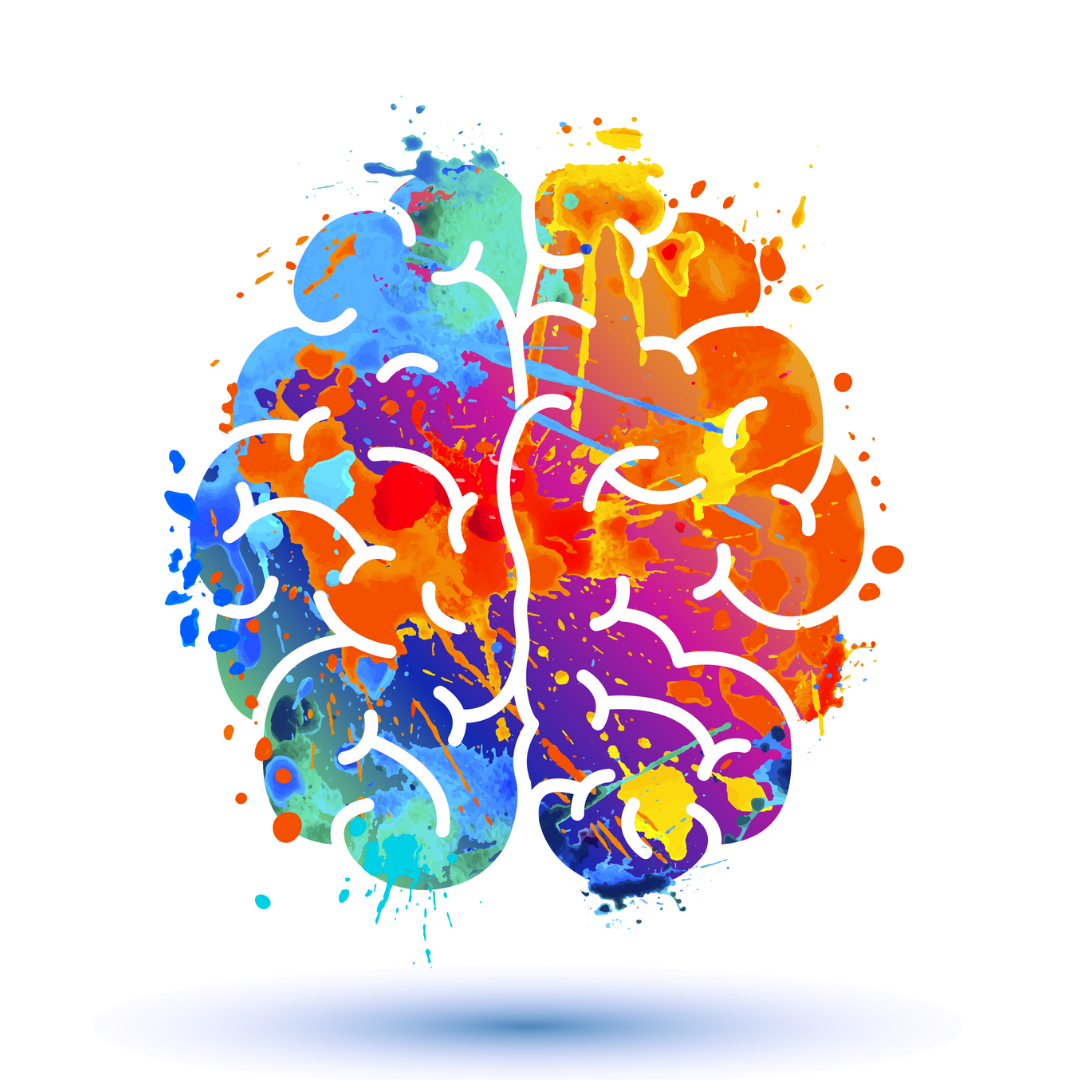This week we are taking a closer look at brain function. We are all a little guilty of being forgetful from time-to-time, this can be due to being more tired than usual, or just mentally not on the ball. Is it coincidence that we just feel like this sometimes? Or is there a reason why our brains functions better on some days and poorly on others? Are we setting ourselves up for trouble in later life? Today we are looking into these questions and into what can affect our brain function.
The brain is constructed of a large mass of nerve tissue, which is involved in every single bodily process we do. Motor skills, problem solving, our emotions, how we see the world, our coordination, memories and how we perform our everyday tasks, you name it and the brain is involved. It is the reason we don’t have to consciously think about breathing or swallowing, so it makes sense to do whatever we can to keep this vital organ working at full capacity for as long as possible. However, as with the rest of the body, there are certain factors that can cause the brain to deteriorate over time.
What Can Cause Decreasing Brain Function?
Ageing is one of the main causes of decreasing brain function. The brain as a whole decreases in size slows, and the frontal cortex (which is involved in our motor skills, problem solving, judgement and attention) decreases by 5% per decade after the age of 40. Vital neurotransmitters, such as dopamine and serotonin, have also been found to decrease over time – even from early adulthood. Dopamine is a neurotransmitter associated with our mood, motor and cognitive function, which reduces over time potentially due to pathways between different parts of the brain declining with age. Serotonin is a neurotransmitter that is heavily linked to a calm, happy state of mind, and low levels can be regularly linked to anxiety and depression. This decline could be due to increased oxidative stress in the brain as we age, which is caused by increase in ‘free radicals’ – unstable oxygen molecules that can damage cells. Mitochondrial dysfunction, usually caused by acquired or genetic changes to DNA, can also be a factor in declining serotonin levels.
What Impact Does Food Have On The Brain?
Our brains are continuously working, even when we are relaxing or fast asleep. For this reason, it requires constant fuel through the food we eat. The type of food we eat has a profound effect on our brain function. We should be eating food that contains lots of vitamins, minerals and anti-oxidants, as these will help to keep the brain working at a high level. Eating foods with a poor nutrient content, such as processed foods, will cause the brain to find it difficult to rid itself of free radicals. Diets high in refined sugar can increase our levels of inflammation and cause oxidative stress, which can lead to mood disorders like depression developing. Our gut is often nicknamed the ‘second brain’, because the two are so closely linked. At least 90% of serotonin levels in the body are produced in the gut, so it matters hugely what we put in there. Supplements like probiotics, or ‘live bacteria supplements’ as they are now known as, have been found to improve perceptions of stress, anxiety levels and mental outlook.

How Does Exercise Affect The Brain?
Through research, there has been a consistent link between improved brain function and physical exercise. Aerobic and more endurance based workouts that increase the heart rate, these have the strongest effect in boosting brain health. When increasing our heart rate, more blood is pumped around the body, including the brain. This gives the brain more oxygen, which is needed for the production of energy in many important reactions in the brain. Regular aerobic exercise can also boost the size of the hippocampus, the part of the brain responsible for learning and memory, so keeping this part healthy may reduced the risk of diseases like dementia. More exercise stimulates the release of growth factors: chemicals in the brain that affect the health of brain cells and the growth of new blood vessels in the brain. There are also more indirect links for improving sleep, mood and reducing stress and anxiety.
The Impact Of Alcohol On The Brain
Although it had been widely accepted that moderate consumption of alcohol had few ill-effects on brain function and health in later life, there have emerged some longitudinal studies with contradicting findings. These studies have found that the brain shrinks in size, relative to how much people drink – with the hippocampus in particular being affected. The brain shrinks the most in heavy drinkers, unsurprisingly, but in moderate drinkers who consumed the equivalent of around 7 pints of beer a week still experienced significant shrinking of the brain. Smoking can also have this effect on the brain, not to mention other issues that smoking brings with it. The nicotine in cigarettes mimics several neurotransmitters in the brain, including dopamine, which creates a pleasurable sensation. Over time, the brain will compensate for the increased signalling activity, which causes a nicotine tolerance, so the need for more nicotine becomes present. This is why smokers become addicted, along with the association with the good feeling when you consume nicotine. There are also increased risks of dementia, stroke and loss of brain volume. However, stopping smoking for good can reduce the amount of nicotine receptors to normal levels, so the cravings will subside the longer you stop smoking for, and the risk of smoking related diseases will reduce significantly as well.
How Does Sleep Help Brain Function?
Perhaps one of the most obvious factors that affects brain function is lack of sleep. After just one night of poor quality sleep, we can see that our ability to think, problem solve and memory is badly affected. Sleep deprivation inhibits our brain cells’ ability to communicate with each other, causing processes in the brain to slow down. Lack of sleep can also disrupt hormone levels, which can affect our energy levels, mood, decision making, memory, creativity and reaction times. When we sleep, the brain is hard at work, moving things we have learned into our long-term memory, repairing damaged tissues and regenerating the central nervous system and immune system. During sleep, there is basically a big clear out of damaged tissues. So without sleep, this clean out cannot be done, and missing out on good quality sleep consistently can have a long-term, damaging effect on the brain.
How Can You Improve Brain Function?
So what can we do to protect and potentially improve our brain function? The most obvious answers are to stop smoking and reduce alcohol consumption. Getting more sleep, exercise and eating less sugar and processed foods will all help too. There are also supplements with the specific goal of improving brain function, these are given the name nootropics. Examples of nootropics include fish oils, omega 3 in particular play a vital role in maintaining the structure and the function of the brain. Resveratrol is a strong antioxidant found in grapes, raspberries and blueberries, which may help prevent the deterioration of the hippocampus. However, there needs to be more research on the use of resveratrol supplements. Caffeine is considered a nootropic, as it stimulates the brain and the central nervous system to make us feel more alert and less tired, however it is widely known that too much can overstimulate the brain and make it more difficult to sleep. There is no magic pill that helps to improve brain function and use 100% of our brain at one time, the brain actually keeps a lot of neutrons silent to keep energy use efficient.

The brain is a complex organ in the body and is responsible for so many different functions around the body. It can be overwhelming to think about all of these factors when it comes to keeping your brain healthy. As a start, you should be more-so focusing on what you’re eating, as this fuels the brains. Following this, look at how much exercise you’re getting, as this helps to get more blood to the brain, meaning more energy and better quality of sleep, which helps to repair damaged tissues and regenerate the nervous system. Getting these factors in order, along with avoiding smoking and excessive alcohol, is a great start to improving brain function. Once you have improved sleep, diet and exercise levels, then it would be good to look into the nootropic supplements if you wanted to further improve and protect your brain for later life. There are a lot of nootropics out there that need more research, so proceed with caution and do your research when looking for a specific supplement.
Contact Us.
Email Us
info@themayfairclinic.com
Call Us
0203 947 32 22
Clinic Address
4 Cavendish Square, London, W1g 0PG.